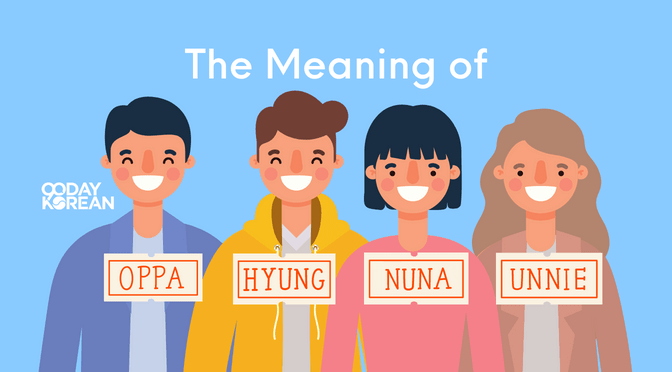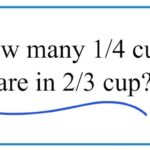Understanding the Meaning of “Hyung” in Korean Culture
Introduction
The Korean language is rich with honorifics and terms that reflect the social hierarchy and relationships among individuals. One such term is “hyung” (형), which is commonly used in various contexts. Understanding the meaning and usage of “hyung” is essential for anyone interested in Korean culture, language, or media, such as K-dramas and K-pop. This article will explore the meaning of “hyung,” its cultural significance, and its usage in everyday conversation. Additionally, we will provide a comprehensive FAQ section and relevant tables to enhance understanding.
What Does “Hyung” Mean?
“Hyung” (형) is a Korean word that translates to “older brother.” It is used by males to address older male siblings or male friends who are older than them. The term reflects a close relationship and is often used in informal settings.
Cultural Context of “Hyung”
In Korean culture, age plays a significant role in social interactions. The use of honorifics and titles is deeply embedded in the language, reflecting respect and hierarchy. The term “hyung” is part of this system and is used primarily among males. Here are some key points about its cultural significance:
- Respect and Affection: Using “hyung” signifies both respect and affection towards the older male. It indicates a bond that goes beyond mere acquaintance.
- Informal Usage: “Hyung” is typically used in informal contexts, such as among friends or family. It is not appropriate to use “hyung” in formal situations or when addressing older male colleagues in a workplace setting.
- Gender-Specific: The term is exclusively used by males. Females use different terms, such as “oppa” (오빠), to refer to older males.
How “Hyung” is Used in Conversation
The usage of “hyung” can vary depending on the relationship between the individuals involved. Here are some scenarios where “hyung” might be used:
- Family Relationships: A younger brother may call his older brother “hyung” as a sign of respect and affection.
- Friendships: Close male friends may refer to each other as “hyung” if one is older than the other, reinforcing their bond.
- K-pop and K-drama: Fans often hear idols and characters using “hyung” in their interactions, which adds to the relatability and warmth of the relationships portrayed.
Related Terms
To fully understand the context of “hyung,” it is essential to recognize related terms in the Korean honorific system:
| Term | Meaning | Usage |
|---|---|---|
| Hyung | Older brother | Used by males to address older males |
| Oppa | Older brother (female usage) | Used by females to address older males |
| Noona | Older sister | Used by males to address older females |
| Unnie | Older sister (female usage) | Used by females to address older females |
| Sunbae | Senior | Used to refer to someone with more experience |
| Hubae | Junior | Used to refer to someone with less experience |
Differences Between “Hyung” and Other Terms
While “hyung” is specific to older brothers or male friends, it is important to differentiate it from other terms:
- Oppa: Used by females to address older males. It conveys a sense of affection and can be used romantically.
- Noona: Used by males to refer to older females, similar to how “hyung” is used among males.
- Unnie: Used by females to refer to older females, indicating closeness and familiarity.
- Sunbae and Hubae: These terms are used in academic and professional settings to denote seniority and junior status, respectively.
The Importance of Hierarchy in Korean Culture
Korean society places a strong emphasis on hierarchy, which is reflected in language use. Understanding the appropriate honorifics to use based on age and status is crucial for effective communication. Here are some aspects of this cultural significance:
- Age Matters: Koreans often ask for each other’s ages upon first meeting to determine the appropriate titles and honorifics to use.
- Respectful Communication: Using the correct honorifics fosters respect and harmony in social interactions.
- Social Dynamics: The use of terms like “hyung” influences the dynamics of friendships and relationships, often establishing a sense of belonging and camaraderie.
Examples of “Hyung” in Popular Culture
The term “hyung” frequently appears in K-dramas and K-pop, showcasing its relevance in contemporary Korean culture. Here are a few examples:
- K-Dramas: In popular series like “Boys Over Flowers,” characters often refer to each other using “hyung,” highlighting their relationships and social dynamics.
- K-Pop Groups: In boy bands, younger members often address older members as “hyung,” reinforcing the bond and hierarchy within the group.
- Variety Shows: Many K-pop idols use “hyung” in variety shows, showcasing their playful interactions and camaraderie.
How to Use “Hyung” Appropriately
Using “hyung” correctly involves understanding the context and relationship. Here are some tips:
- Informal Settings: Use “hyung” in casual conversations among friends or family.
- Close Relationships: Reserve “hyung” for those you are close to, as it conveys familiarity and affection.
- Avoid Formal Situations: Do not use “hyung” in formal settings or when addressing superiors in a professional environment.
Conclusion
The term “hyung” is a significant part of the Korean language and culture, embodying respect, affection, and social hierarchy. Understanding its meaning and usage enhances one’s appreciation of Korean culture, particularly in the context of K-dramas and K-pop. By recognizing the nuances of “hyung” and its related terms, individuals can navigate social interactions in Korean society more effectively.
FAQ Section
- What does “hyung” mean?
- “Hyung” means “older brother” and is used by males to address older male siblings or friends.
- Can females use “hyung”?
- While females can technically use “hyung,” it is more common for them to use “oppa” when addressing older males.
- Is “hyung” used in formal settings?
- No, “hyung” is an informal term and should not be used in formal situations or when addressing superiors.
- What is the difference between “hyung” and “oppa”?
- “Hyung” is used by males to address older males, while “oppa” is used by females to address older males.
- How does “hyung” reflect Korean culture?
- “Hyung” reflects the importance of age and hierarchy in Korean culture, emphasizing respect and relationships.
- Are there other honorifics in Korean?
- Yes, other honorifics include “noona,” “unnie,” “sunbae,” and “hubae,” each with specific meanings and usages.
- Can “hyung” be used among friends?
- Yes, “hyung” is commonly used among close male friends who are of different ages.
- What is the significance of using honorifics in Korea?
- Using honorifics fosters respect and maintains social harmony in interactions.
- How do K-pop idols use “hyung”?
- K-pop idols often use “hyung” to address older members of their group, showcasing camaraderie and respect.
- Where can I learn more about Korean honorifics?
- For further information, you can visit Korean Honorifics – Wikipedia.
Summary Table
| Term | Meaning | Usage |
|---|---|---|
| Hyung | Older brother | Used by males to address older males |
| Oppa | Older brother (female usage) | Used by females to address older males |
| Noona | Older sister | Used by males to address older females |
| Unnie | Older sister (female usage) | Used by females to address older females |
| Sunbae | Senior | Used to refer to someone with more experience |
| Hubae | Junior | Used to refer to someone with less experience |
This comprehensive exploration of “hyung” provides insights into its meaning, cultural significance, and appropriate usage in various contexts. Understanding this term enriches one’s knowledge of Korean language and culture, making interactions more meaningful and respectful.
Read more about it:https://greyhoundsverdevalley.com/how-long-do-cockapoos-live/



